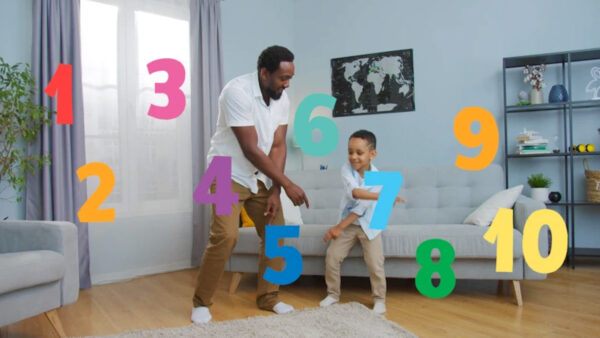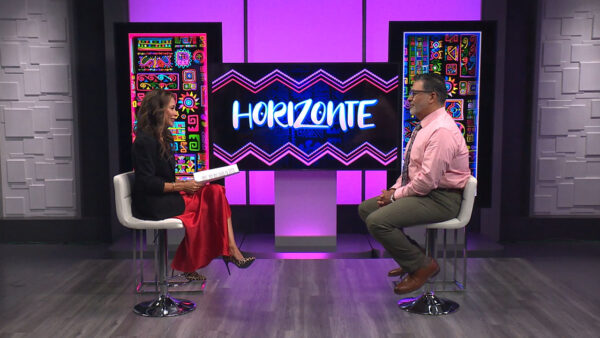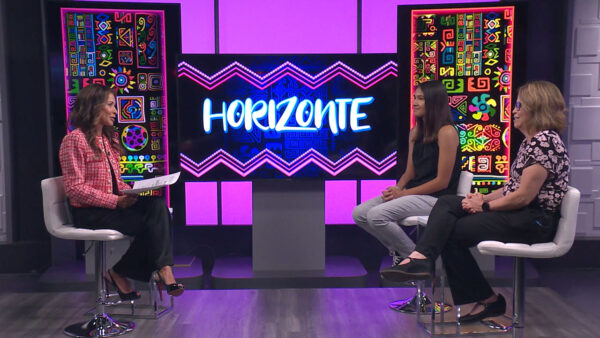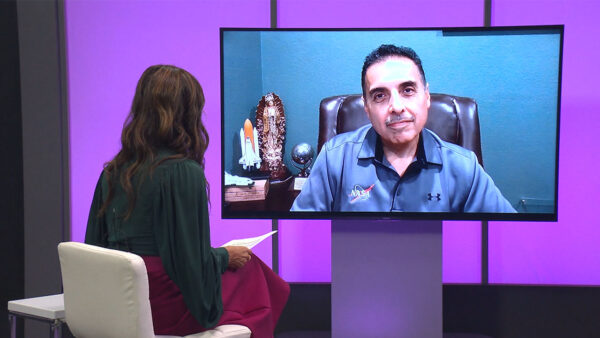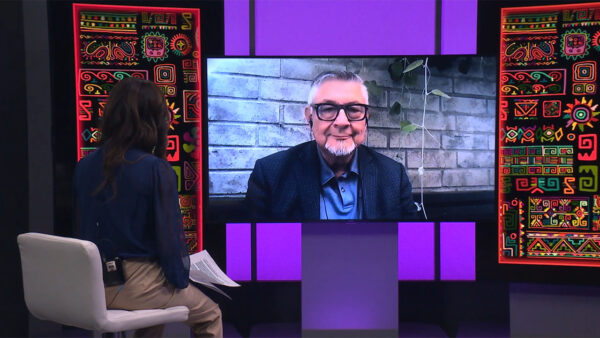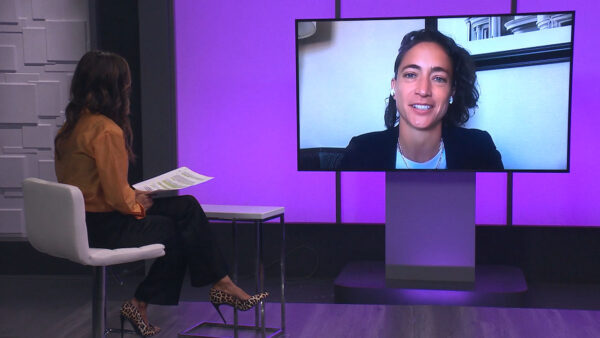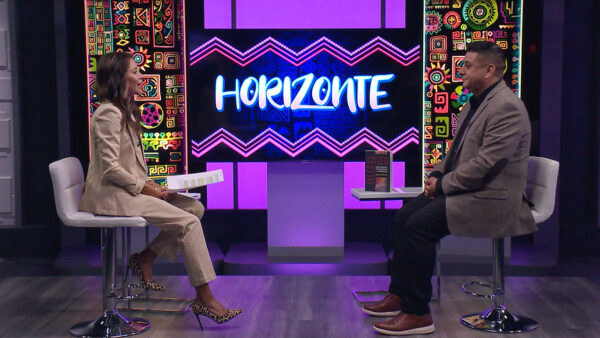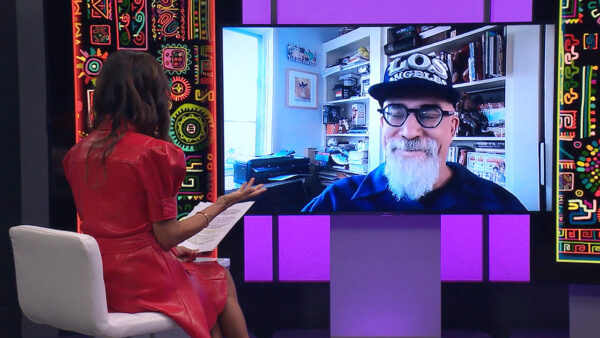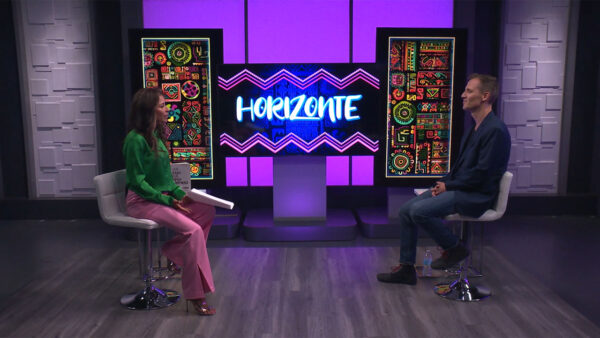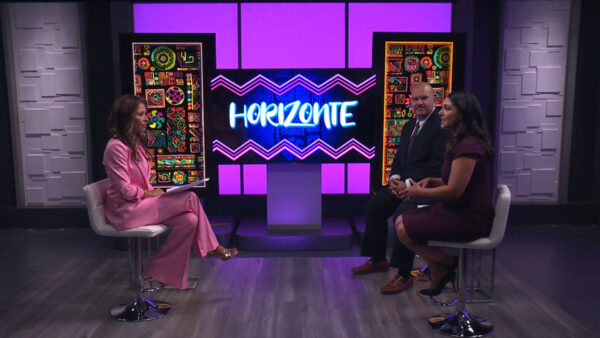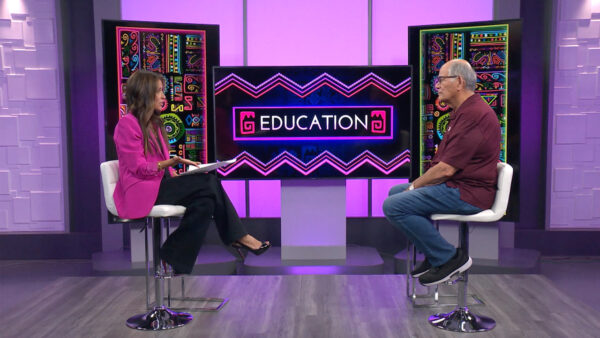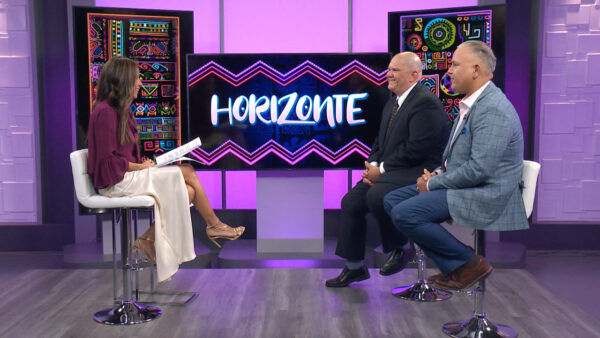Phoenix College is hosting a community screening of the third episode of the documentary series, “Arizona’s Mexican Heritage: An American Story.” The episode, “Building Arizona”, examines the international, national and statewide process of industrialization, and the importance of Mexican labor in the integration of Arizona into the rest of the Arizona economy. Director and producer Dr. Pete Dimas talks about the series.
Jose Cardenas: Last month, the Phoenix college liberal arts department started presenting the first of three episodes of Arizona's Mexican heritage, an American story film series, we'll talk with the producer in a moment but first here's a look at a clip from episode 1 of the origins, exploring the evolution of Arizona's Mexican heritage.
Jose Cardenas: Here with me now to talk about "Arizona's Mexican Heritage: An american story," is producer and director Dr. Pete Dimas. Pete, welcome back to Horizonte. We have had you here to talk before about the history of the Mexican community in Arizona. The clip we just saw begins it's episode 1, begins in modern times, you make a reference to your own upbringing and you show photos of, of the house that you lived in, and the books that were in the school at the time. It really is the origins, which is the name of the first episode. It takes us from, from preconquest Mexico to about the time of the civil war. Give us a bit more.
Pete Dimas: Well, basically, it's a reaction to the reality when I went to school, there was nothing about, about Mexican, chicanos, anywhere. And even when in high school I would hear teachers tell us things about cowardly people, and I knew that was not true. And so, I wanted to look and see where did this connection come? When did it begin? And I came to find out it's over 4,000 years old in Arizona, reaches into central Mexico. And so, we take a tour through that reality. We take a tour of the evolution of the Spanish, why are they so powerful. And also, we take a look at that conflict that take place that, you know, people look at, at that conquest as if the Spanish come in and just roll over the, the native, the nations, and that's not the case at all.
Jose Cardenas: 1519 now --
Pete Dimas: What we have is the Aztecs, as we call them, had an empire, and the problem with empires is that there is a lot of people that don't want to be in the empire. So, what you really have is a rebellion where the Spanish are taking advantage of the Indians, and the Indians are taking advantage of the Spanish. What really throws the monkey wrench into the whole thing, the whole political calculus, is the disease factor that just wipes out the leadership and much of the core of those political, societal structures. Small pox and others over a course of a century dropped the population from say 25 million down to about a million. We're talking about a dramatic shift. As a result you have the implementation of the Africans, a catholic country, for one generation, and they are part of the Gene pool. You have the movement north, which produces all that silver, that transforms the world economy, and not just to Europe, but also, the, the thing that surprised me was the amount of silver flown to China from the Manila trade, which brings large numbers of people to central Mexico, so we have this process of this racial mixture, and those are the people that move north into what is Arizona, following the, the mineral trail, the silver mines that are everywhere you look, up the scale, you find them. That's what most people -- and the supply of all of that is where we develop these ranching societies, these farming -- the individual, small miner -- all of that is part of this movement.
Jose Cardenas: So what parts of these might surprise people? Fortunately, things have changed a bit in our school system, and you would not have teachers referring to Mexicans as cowardly people or an absence of discussion, and certainly, not the depth of, of history analysis that you have in your movies. What would people be surprised to find out from, from the film?
Pete Dimas: From the films? The extent of the involvement of these people in the creation of what becomes American, Arizona. For example, people don't know that it's New Mexico, national, not that, but that New Mexico volunteered during the civil war that escort the first territorial Governor into the Arizona territory. So, what we have here is the people who were here before actually, continuing and the development of the region. Now, wearing American uniforms, and they are the beginnings of, of many traditions, including the tradition of the Arizona National Guard.
Jose Cardenas: So, episode 1 was origins. Episode 2, which is also, has been shown at the Phoenix college, is creating Arizona. In what sense?
Pete Dimas: Well, commercially. We take a look at the world through the lens of the industrial revolution, modernization. But the fact of the matter is, you need to have the technology to survive in this desert area. You need to have a means of commercial interaction, and those are already set up from central Mexico and through the Santa Fe trail, which is really an extension of the chiwawa trail into Central Mexico, so you have the merchants there that, that are part of continuing the trade. You have the miners that are necessary in order to open up the mines, and then you have the reality that Anglo-Americans cannot survive in those apache wars without the help of the Mexican population and the Pima population on top of that, the old -- there is a complexity here that people don't realize has taken place. You have the movement to California that comes from the northern parts of sonora through Yuma, and they play a major role in the -- what we know as the California gold rush. And, and who is going to get there first? And, and who knows how to mine, and it's the Mexican population.
Jose Cardenas: Now, episode 2 ends around the 1920s or so?
Pete Dimas: 1920s.
Jose Cardenas: And I saw --
Pete Dimas: Excuse me, episode, episode 2 ends with the coming of the railroad.
Jose Cardenas: And that would be about what time period?
Pete Dimas: 1880s or so, and you see the establishment of schools, the establishment of say Arizona State University with the help of the hotel and, and in Tempe. You see that all these institutions that are vital to us today, many of them have their roots with the Mexican participation.
Jose Cardenas: And, and the first board of regents there was a person of Mexican dissent. We have over a minute left, and let's talk quickly about episode 3, and then what you intend to do going forward.
Pete Dimas: Ok.
Jose Cardenas: And that airs when?
Pete Dimas: November 20. Episode 3 is the other transformation that take place, the industrial revolution. Where the railroads become important, where you need the labor to extract the wealth of the country and you are going to need lots of Mexican labor to really integrate this part of the nation to the American economy. So, you have, you have that part of the story, and it gets -- you have the problems that come with large scale immigration. We end up having issues of repatriation when the economy goes sour, but as soon as people are needed for work, guess who is called? That's, that's the reality. That's the cycle that we end up that, that -- with 1920s.
Jose Cardenas: Somewhat being repeated now.
Pete Dimas: Oh, yes.
Jose Cardenas: And Pete, we're almost out of time. I know that you have three more episodes in mind. Give us a quick rundown.
Pete Dimas: Well, episode 4, I anticipate will be about the Mexican involvement in education. Many of the schools were started by these people that came from New Mexico, from sonora.
Jose Cardenas: And five and six? We're almost out of time.
Pete Dimas: Oh, my God.
Jose Cardenas: Something to look forward to.
Pete Dimas: Something to look forward to and, and I'm going to have to release episodes 1, 2, and 3 as part 1 of the series because people are asking for it.
Jose Cardenas: Well I am sure that everybody will be looking forward to it, congratulations and I hope you have a good crowd.
Pete Dimas: I wish that I could have thanked the people who helped me.
Jose Cardenas: You have, and that's our show for tonight, from all of us here at 8 and Horizonte, thanks for watching, I'm Jose Cardenas, and have a good evening.
Dr. Pete Dimas:Director and Producer, "Arizona's Mexican Heritage: An American Story";


